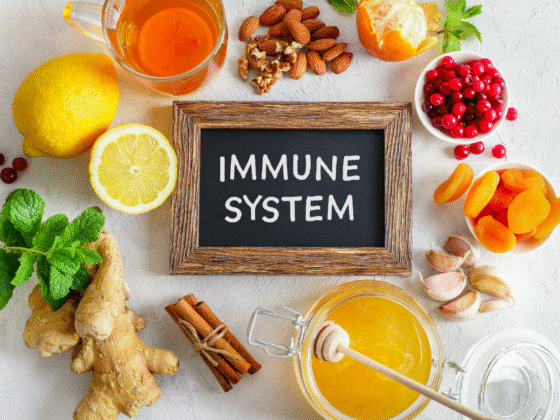Introduction
Anxiety is a common mental health condition that affects millions of people worldwide. It can manifest as persistent worry, fear, and nervousness, often affecting daily life. While prescription medications and therapy are popular treatment options, many people are turning to natural remedies for anxiety to find relief without relying on pharmaceuticals. In this article, we will explore top natural remedies to beat anxiety fast, focusing on holistic approaches that can help calm the mind and promote well-being.
If you’re struggling with anxiety, it’s essential to consider natural ways to help manage your symptoms. Not only do these remedies provide immediate relief, but they also promote long-term mental health.
Internal Link: For tips on improving your sleep naturally, check out our article on “Tips for Better Sleep Naturally.”
1. Deep Breathing Exercises
How Deep Breathing Helps with Anxiety
One of the simplest and most effective natural remedies for anxiety is deep breathing. Anxiety often leads to shallow, rapid breathing, which can increase stress levels. Deep breathing exercises, such as diaphragmatic breathing or the 4-7-8 technique, can activate the body’s relaxation response, reduce the heart rate, and calm the nervous system.
How to Practice Deep Breathing
To practice deep breathing, sit comfortably with your back straight. Inhale deeply through your nose for a count of four, hold for seven seconds, and then exhale slowly through your mouth for a count of eight. Repeat this process several times to help restore calm and relieve anxiety.
2. Aromatherapy with Essential Oils
Why Aromatherapy Works for Anxiety
Aromatherapy has been used for centuries to promote relaxation and mental clarity. Essential oils such as lavender, chamomile, and sandalwood have calming effects that can help reduce anxiety. The soothing scents activate the olfactory system, which is linked to the limbic system in the brain—the area that controls emotions.
How to Use Essential Oils
You can use essential oils for anxiety in various ways. Try diffusing the oils in your home, adding a few drops to a warm bath, or applying diluted essential oils to your temples and wrists. Lavender oil, in particular, is known for its calming effects and is ideal for promoting relaxation during stressful moments.
3. Herbal Supplements for Anxiety Relief
Herbal Remedies That Can Help
Several herbs have been shown to help reduce anxiety symptoms naturally. Some of the most popular herbs for anxiety relief include:
- Ashwagandha: Known for its adaptogenic properties, ashwagandha can help the body better handle stress and anxiety.
- Chamomile: Chamomile has calming effects and is often consumed as a tea before bed to promote relaxation.
- Valerian Root: Valerian root is commonly used to alleviate insomnia and reduce anxiety symptoms.
How to Use Herbal Supplements
Herbal supplements can be consumed in various forms, such as capsules, teas, or tinctures. However, it’s important to consult with a healthcare provider before starting any new supplement to ensure it’s safe and appropriate for your specific needs.
4. Regular Exercise
The Link Between Exercise and Anxiety Relief
Exercise is not only good for your body, but it also has a profound effect on mental health. Physical activity releases endorphins, which are natural mood boosters that can help alleviate anxiety. Regular exercise, such as walking, running, swimming, or yoga, can reduce the severity of anxiety symptoms and help the brain cope with stress more effectively.
How Much Exercise is Needed?
To experience the benefits of exercise for anxiety, aim for at least 30 minutes of moderate-intensity physical activity most days of the week. Even short bursts of exercise can significantly improve mood and reduce stress levels.
5. Meditation and Mindfulness
Why Meditation Helps Reduce Anxiety
Meditation and mindfulness techniques can be highly effective for managing anxiety. By focusing on the present moment and practicing awareness, meditation helps reduce the constant stream of anxious thoughts. Mindfulness practices can calm the mind, promote relaxation, and help individuals gain better control over their emotions.
How to Practice Meditation and Mindfulness
To practice mindfulness, find a quiet place and focus on your breath. When anxious thoughts arise, acknowledge them without judgment, then gently bring your focus back to your breath. Start with just a few minutes each day and gradually increase the time as you feel more comfortable.
6. A Healthy, Balanced Diet
How Diet Affects Anxiety
Your diet plays a significant role in your overall mental health. Foods rich in omega-3 fatty acids, such as salmon, flaxseeds, and walnuts, have been shown to reduce symptoms of anxiety. Additionally, foods high in magnesium, like spinach and avocado, can help calm the nervous system and reduce stress levels.
What Foods to Eat for Anxiety Relief?
A balanced diet that includes whole grains, lean proteins, healthy fats, and plenty of fruits and vegetables is essential for supporting mental well-being. Avoiding excessive caffeine, sugar, and processed foods can also help keep anxiety at bay.
7. Yoga and Stretching
How Yoga Relieves Anxiety
Yoga combines movement, breathing exercises, and meditation to create a holistic practice that promotes relaxation and reduces anxiety. The practice of yoga helps release physical tension, calm the nervous system, and improve mental clarity. Additionally, yoga poses like child’s pose and downward dog can help reduce the effects of anxiety by focusing the mind and promoting deep relaxation.
How to Get Started with Yoga
Begin by incorporating simple yoga poses into your routine, either at home or in a class. Focus on your breath and the sensations in your body as you move through each pose. Yoga can be a powerful tool to help reduce the frequency and intensity of anxiety attacks.
Conclusion
Managing anxiety can feel overwhelming, but by incorporating natural remedies for anxiety, you can start to feel more in control of your mental health. From deep breathing exercises to yoga, aromatherapy, and a healthy diet, these natural approaches are not only effective but also sustainable. Remember that managing anxiety is a journey, and it’s essential to be patient with yourself as you explore different remedies to find what works best for you.
If you’re looking for ways to improve your sleep and manage stress more effectively, make sure to check out our article on Tips for Better Sleep Naturally. A well-rounded approach to mental and physical health is key to overcoming anxiety and living a balanced, fulfilling life.


